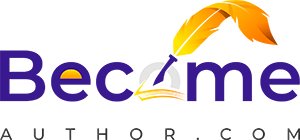Have you written a stellar book, proofread, edited and are now seeking a way to publish it? Well, we’re here to help you identify the different options you can choose to publish your book.
Five Different Ways To Publish Your Book
There are several ways to publish a book, and the best approach depends on your goals, resources, and preferences. Here are some of the main options:
1) Traditional Publishing:
Traditional publishing involves submitting your manuscript to publishing houses that review and select books for publication. If accepted, the publisher handles the editing, design, printing, distribution, and marketing of your book. This route offers the benefit of professional support and wider distribution networks. However, it can be highly competitive and may involve a longer timeline to get your book published.
2) Self-Publishing:
Self-publishing allows you to have complete control over the publishing process. You can choose from various online platforms, such as Amazon Kindle Direct Publishing (KDP) or Smashwords, to publish your book as an e-book or print-on-demand paperback. Self-publishing enables quicker publication, higher royalties, and greater creative freedom. However, it also means taking on the responsibilities of editing, cover design, marketing, and distribution yourself or outsourcing them to professionals.
3) Hybrid Publishing:
Hybrid publishing combines elements of both traditional and self-publishing. In this model, you work with a publishing company that offers professional services like editing, design, and distribution. However, you may be required to invest in the publishing process or share some of the costs. Hybrid publishing can be a good option for authors who want a more collaborative publishing experience while retaining some creative control.

4) Small Press Publishing:
Small press publishers are independent publishing houses that focus on niche genres or specific audiences. They offer a middle ground between traditional and self-publishing, providing editorial guidance, distribution, and marketing support while offering authors more individual attention. Research and identify small press publishers that align with your book’s genre or theme and submit your manuscript for consideration.
5) Literary Agents:
Literary agents act as intermediaries between authors and publishers. They help authors navigate the publishing industry, negotiate contracts, and advocate for their work. While not essential, having a literary agent can increase your chances of securing a traditional publishing deal. Research and approach agents who specialize in your genre and submit a query letter and/or manuscript for their consideration.
It’s important to thoroughly research and evaluate the options available to you. Consider factors such as your publishing goals, budget, timeline, marketing capabilities, and willingness to take on different responsibilities. Each publishing route has its pros and cons, so choose the one that aligns with your needs and objectives.
Do you want to publish your book? Reach out to us at editorial@becomeauthor.com. We have different packages you can choose from depending on your publishing requirements, from proofreading to editing, and publishing, among other perks.




